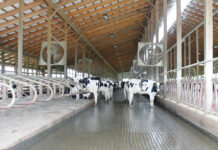GUADALAJARA, Mexico — The focus of modern and conventional biotechnologies should be redirected to benefit poor farmers in poor countries and not only rich farmers in rich countries, Food and Agriculture Organization said recently.
Tools
“Modern and conventional biotechnologies provide potent tools for the agriculture sector, including fisheries and forestry,” said Modibo Traore, Food and Agriculture Organization assistant director-general, addressing the international technical conference on Agricultural Biotechnologies in Developing Countries in Guadalajara, Mexico.
“But biotechnologies are not yet making a significant impact in the lives of people in most developing countries,” Traore said. “At present, there is a lack of appropriate and useful technologies, policies, technical capacities, and requisite infrastructure for their development, evaluation and deployment in most developing countries.”
The conference in Guadalajara is reviewing past successes and failures of biotechnologies across the different food and agricultural sectors in developing countries. The meeting is not focused on genetically modified organisms (GMOs).
Too much emphasis on GMOs
According to Food and Agriculture Organization, biotechnological innovations can be of significant assistance in doubling food production by the year 2050 and in addressing the uncertainties of climate change.
“In the past few decades, the field of biotechnologies has advanced at a formidable speed and generated numerous innovations particularly in the field of pharmaceuticals and some in the field of agriculture,” Traore said.
The innovations in agriculture include highly successful rice hybrids for Africa that have doubled rice yields, the use of artificial insemination to raise dairy cattle milk yields in Bangladesh and the use of DNA-based methods to detect shrimp diseases in India.
But most biotechnologies cannot be fully exploited because “often, there is emphasis on genetically modified organisms only, which overshadows all other biotechnologies and their potential contribution to agriculture. In addition, the synergy between the public and private sector remains to be harnessed.”
Food and Agriculture Organization called for a new approach to agricultural research and development supporting the wider and wiser use of agricultural biodiversity to promote development and improve food security.
“New technologies should make their contributions also through efficiency gains from better management of inputs and biodiversity. This will require greater involvement of farmers, institutions and communities. It will require other enabling factors such as policies, institutional support, and investment in human and physical capital and in-country capacity building. Food and Agriculture Organization focuses its activities on support to smallholders in order to sustainably increase agricultural productions, improve access to markets and enhance livelihoods,” Traore said.









